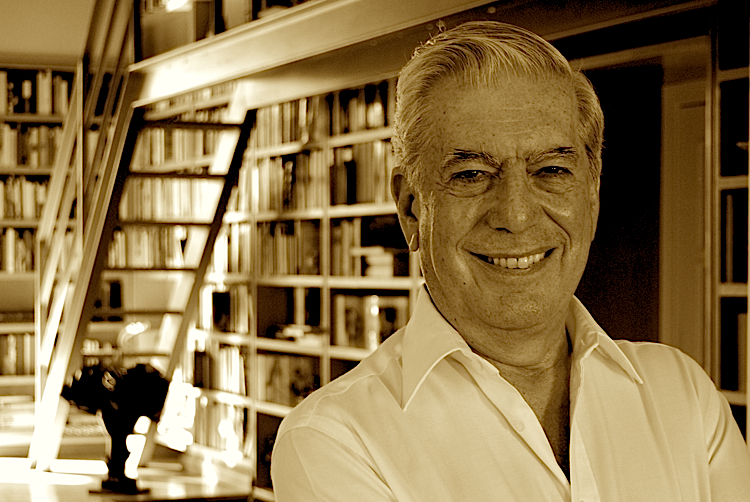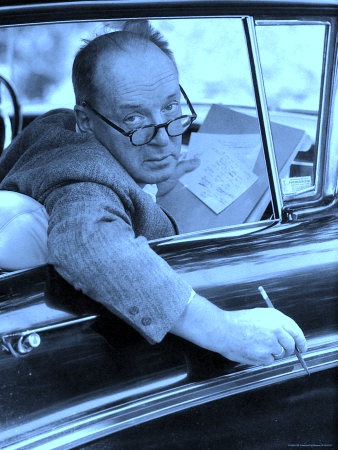
By David Ross. Mario Vargas Llosa has won the Nobel Prize in literature — a laudable, long overdue selection — and Chinese democratic activist Liu Xiaobo has won the Peace Prize. This was an unusually reasonable and gratifying Nobel season. The Nobel establishment was evidently trying to perform emergency reconstructive surgery on its own reputation after giving President Obama the Peace Prize.

I read Vargas Llosa’s The War of the End of the World (1981) twenty-five years ago. I was a fifteen-year-old intern in the Washington office of Congressman Bill Gradison (R-Ohio). One of my fellow interns lent the book to me. I was enraptured. The plot long ago evaporated from memory, but I still have certain tableaux fixed in my mind; I still recall a certain mood of welling apocalyptic energy. I haven’t read Vargas Llosa in the intervening decades, but I have long meant to give his work a further try. I now have my impetus.
Vargas Llosa is a rare conservative among winners of the literature prize. The Nobel committee has notoriously blackballed conservatives and non-progressives since the 1960s. Pound, Borges, Nabokov, and Updike had undeniable claims on the prize but were all criminally denied. Solzhenitsyn and Saul Bellow were the exceptions to the rule. Note however that the committee’s official commendation of Vargas Llosa exudes academic left-wingery (“for his cartography of structures of power and his trenchant images of the individual’s resistance, revolt, and defeat”) as if to make clear that the committee observed the usual bien pensant considerations. “Cartography of structures of power” may be the clumsiest phrase ever employed by the Nobel committee, and that’s saying a good deal: some of its commendations read like thesis statements plucked from overly earnest high school term papers.
There were, admittedly, reasons to snub Pound, but the snubbing of Borges and Nabokov was an outrage against intellectual honesty. Updike had two strikes against him: he was an non-self-loathing American and he was a quiet conservative (see his brilliant essay “On Not Being a Dove” here). He was the only haute-novelist who did not vocally oppose the Vietnam War, and he consistently defended the religious sensibility against the galloping secularism of the age. When the Twin Towers were struck he did not, like Susan Sontag, rail against American imperialism, but wrote in a mood of deep and genuine heartbreak (here). Other Americans whom the Nobel committee has ignored, in order of victimization:
- Wallace Stevens
- Thomas Pynchon
- Marianne Moore
- William Carlos Williams
- Tennessee Williams
- Philip Roth
- Richard Wilbur
- Norman Mailer
- Edmund Wilson
- Cynthia Ozick
- John Barth
Had she lived into middle age and realized her great genius, Flannery O’Connor would have been another conservative whom the Nobel committee could have boasted of snubbing.
The Wall Street Journal comments on Vargas Llosa’s ascension (here) and interviews the Nobel hero (here). Adam Gopnik of the New Yorker sends fluttering our way the usual clever nothings (here).
[UPDATE: Read here how Swedish leftists are apparently outraged that Llosa won the award, because he isn’t “one of us.” Thanks to LFM’s Patricia Ducey for the heads-up.]
Posted on October 13th, 2010 at 9:06am.
I’ll have to read that novel.
Predictably, some leftists are upset at the award.
http://www.spiked-online.com/index.php/site/article/9776/
The Nobel Prize truly reached it’s nadir with last year’s winner and is perhaps beyond any redemption. It’s total tool of the European Left Elites. Another glaring example is Paul Krugman. Now that his economic policies have been discredited, he should go into acting and try out for the role of Wesley Mouch in Atlas Shrugged.
Most of the stories about Vargas Llosa’s award mention his early works, such as “Conversations in the Cathedral” and “The Green House”, as well as the later, towering “War of the End of the World.” But there are three or four shorter works that are much more accessible, though no less characteristic, than those, and I would recommend them to anyone wishing an introduction to this great writer. In order, they are:
1. “Aunt Julia and the Scriptwriter” — hilarious, and memorable for one of the great characters in literature, the driven script writer Pedro Camacho.
2. “Who Killed Palomino Molero?” — a classic whodunit done in Vargas Llosa’s inimitable style. Can be read in a couple of hours.
3. “The Real Life of Alejandro Mayta” — Vargas Llosa’s complex structure enhances the story of a failed revolutionary.
4. “Death in the Andes” — a chilling story about the Peruvian Maoist terrorists, El Sendero Luminoso (The Shining Path).
After you’ve read a few of his novels, try “A Writer’s Reality”, in which he dissects the construction and story behind each of his novels. Until I read that, I never knew, e.g., that the episodes he describes in “War of the End of the World” were real. And for the fate of a classical liberal in politics, his “A Fish in the Water” is not to be missed.
I looked at the piece sent along by Ms. Ducey (thanks for that by the way). I defy anybody to unearth an analogous conservative temper-tantrum when GG Marquez won the prize. What’s really dead on the left is the sense of the sufficiency of the aesthetic. Marquez may be a Castroite lunatic, but he deserved the prize on literary grounds and I’m delighted he won.